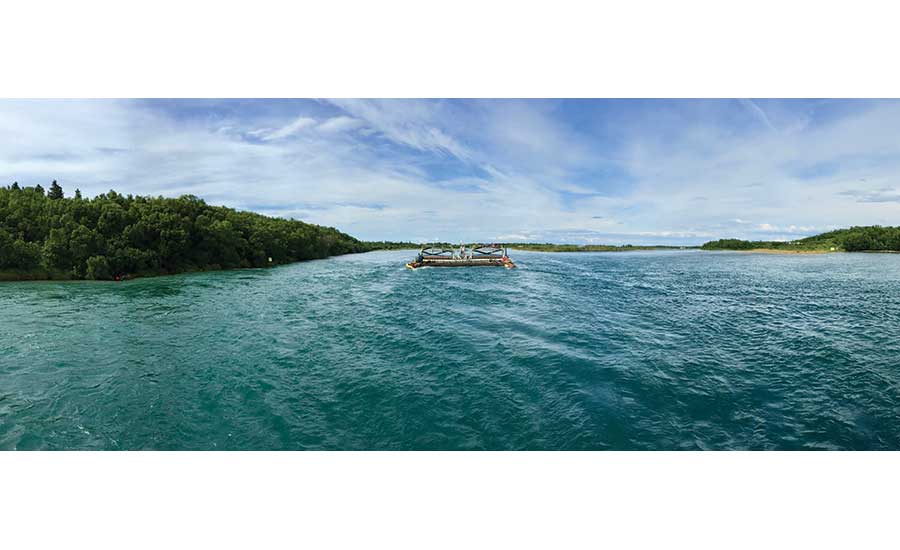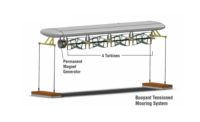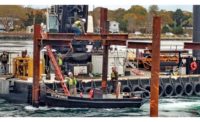Developers of a grid-connected tidal energy project in a remote region of southwestern Alaska have received a $2.3-million award from the Dept. of Energy to continue work on a cross-flow river current turbine system.
Ocean Renewable Power Co. of Maine and five other awardees will receive a total of $6.7 million in federal innovative technology development funds, DOE announced June 15.
“Marine energy technologies have the potential to provide millions of Americans with locally sourced, affordable and reliable energy,” says Daniel Simmons, principal deputy assistant secretary for the department’s Office of Energy Efficiency and Renewable Energy’s Water Power Technologies Office.
The funding will help the Igiugig Village Council—in partnership with ORPC—with the permanent installation of a Version 2.0 RivGen system next July. The village, situated at the mouth of the Kvichak River and Lake Iliamna, Alaska’s largest freshwater lake, is known for its trophy rainbow trout and world’s greatest sockeye salmon run. No fish injuries or mortalities were reported during extensive environmental testing, says Nathan Johnson, ORPC vice president of development.
The RivGen underwater power system is a smaller 35-kW version of ORPC’s four-turbine TidGen ocean tidal technology—the first grid-connected tidal energy project in North America and first ocean energy project to deliver power to a utility grid anywhere in the Americas.
Chris Sauer, ORPC president, says the system is designed for rivers and fits in shallow water as low as 18 ft. “It is a tidal generating unit with two turbines and a generator that sits on a pontoon support structure.” The pontoon can be deployed and retrieved with available vessels, equipment and contractors.
This is critical in Igiugig, where the cost of generating electricity is 80¢/kWh—eight times the national average of 10¢/kWh—due to reliance on diesel generation. The RivGen technology is expected to enable the remote village to use diesel fuel for emergency backup only.
Sauer says, “With the low cost of natural gas, we have determined the best early-adopter market for this technology near term for us is these remote communities on diesel micro-grid. … Throughout North America, there are hundreds of communities that rely 100% on diesel.” Fuel delivery to remote areas lacking paved-road access jacks up the cost. “Most of these communities are sitting on very good river or tidal resources.”
In 2014, the ORPC team completed tow testing of its RivGen turbine generator to prepare for its first commercial-scale demo, which delivered power to Igiugig. In 2015, ORPC installed an updated system, providing one-third of the village’s electricity needs.
ORPC hopes to install a similar unit in Quebec by the end of next year.






Post a comment to this article
Report Abusive Comment